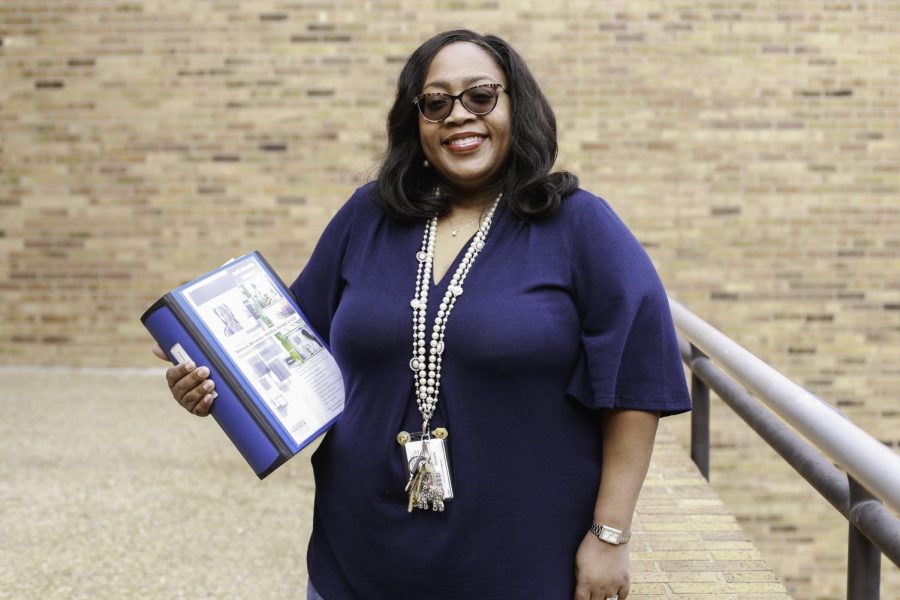Growing HIT program earns accreditation
Sonya Braddy, HIT program director, is growing the degree program with the recent CAHIIM accreditation. The accreditation elevates the program and gives graduates more job opportunities.
May 10, 2022
The Health Information Technology program is accredited after a three-year process. Sonya Braddy, program director for the Health Information Technology program at Dallas College, is shouting it from the rooftops.
On March 23, Dallas College received their official accreditation from the Commission on Accreditation for Health Informatics and Information Management Education.
A pandemic, the transition to one college and a teacher shortage were obstacles on the road to finalizing the accreditation, but Braddy was undeterred.
Braddy said the accreditation is crucial because it gives students the ability to apply for scholarships and volunteer at events while in school. Beyond graduation, the accreditation credentials open the possibilities for promotions and higher pay.
Braddy said the HIT associate of applied science degree is an important program available at Dallas College Brookhaven Campus. Graduating students will be able to help fulfill workforce needs as the Dallas area continues to see increased hospital construction. In his D Magazine article, Matt Goodman said, “Healthcare reform, a population spike, and the aging of the baby boomers spur the construction of more – and more high-tech – new facilities.”
Braddy said: “Well, hospitals can’t just be filled with doctors and nurses. They’re not the only professionals that they need to make a hospital run. You need people who can also manage the health information.”
According to the Dallas College website, the health information technology program is a good fit for anyone interested in combining work in technical office skills and healthcare. Recent graduate Stephanie Claus said she knew she was interested in the medical field, but did not have medical experience. However, the HIT degree provided her with the opportunity to work in a medical related field.
She said she was able to complete the program in two years including her six months of prerequisites. Claus said the program was not easy, but the reward was instant. “I was fortunate I was able to get a job almost immediately,” she said.
In a post-pandemic/Great Resignation world, choosing a fulfilling career with competitive pay has become a moving target. HIT student Tracy Hamblin said, “The last job I was working had a departmental layoff, and I had an option to be retrained or go to school.”
Hamblin said after the layoff, the Texas Workforce Commission advised her to find a school offering a program in billing and collection. She said she made the decision to go back to school and is currently three classes away from graduation and just four months shy of her 60th birthday. She said the most exciting thing about the program is learning new things that will help pursue a higher salary when seeking employment.
Both Hamblin and Claus credit their success in the program with hard work and Braddy’s leadership and passion. Hamblin said, “Professor Braddy is by far the best leader, instructor, individual, compassionate woman who gives you hope and works with you through the process.”
And while students, staff and faculty of the HIT program are seeing the fruits of their labor, obtaining the accreditation required persistence. Braddy said when she began as program director in 2017, it was a difficult process determining where to find information for the accreditation.
As the transition from Dallas County Community College District to Dallas College began, there were many moving parts and staffing changes. In 2019, Braddy worked with now-Chancellor Justin Lonon, then the interim president of Brookhaven, to finalize the application for CAHIIM accreditation.
The accreditation process slowed down shortly after sending in the application as COVID-19 began sweeping across the world bringing with it a shutdown. The pandemic slowed things down or brought them to a halt, but Braddy had one more obstacle to overcome – staffing. She said the accreditation requires a minimum of two full-time faculty for the degree program.
“We didn’t go to school to teach and most of [health information technology professionals] don’t want to teach,” Braddy said. “They want to work in hospitals. They did not go to school to be a teacher.” Once Braddy was able to find the necessary staff, the degree program was able to flourish.



